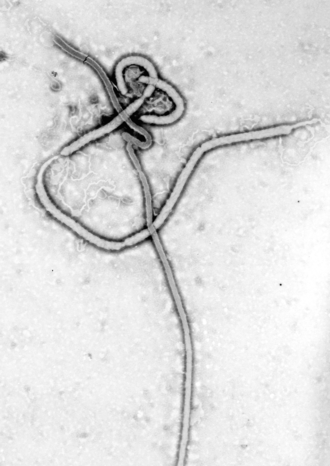CAd3-ZEBOV
A detailed overview of the CAd3-ZEBOV vaccine for Ebola virus
Overview[edit]

The CAd3-ZEBOV vaccine is a candidate vaccine developed to provide immunity against the Ebola virus. It is based on a recombinant chimpanzee adenovirus type 3 (CAd3) vector that expresses the glycoprotein of the Zaire ebolavirus (ZEBOV), which is responsible for the most severe outbreaks of Ebola virus disease.
Development[edit]
The development of CAd3-ZEBOV was initiated in response to the urgent need for effective vaccines during the 2014 West Africa Ebola outbreak. The vaccine was developed by the National Institute of Allergy and Infectious Diseases (NIAID) in collaboration with the pharmaceutical company GlaxoSmithKline (GSK).
Mechanism of Action[edit]
CAd3-ZEBOV utilizes a non-replicating viral vector to deliver the Ebola virus glycoprotein gene into the host cells. This induces an immune response by stimulating the production of antibodies and activating T-cells, which are crucial for providing protection against the Ebola virus.
Clinical Trials[edit]

The vaccine underwent several phases of clinical trials to evaluate its safety and efficacy. Initial trials demonstrated that CAd3-ZEBOV was well-tolerated and capable of eliciting a strong immune response in humans. Subsequent trials were conducted in West Africa during the Ebola outbreak to assess its effectiveness in preventing the disease.
Challenges and Considerations[edit]
While CAd3-ZEBOV showed promise in early trials, challenges such as the logistics of vaccine distribution in outbreak settings and the need for cold chain storage were significant hurdles. Additionally, the emergence of new Ebola virus strains necessitates ongoing research and potential modifications to the vaccine.
Related pages[edit]
Ad. Transform your life with W8MD's Budget GLP-1 injections from $75


W8MD offers a medical weight loss program to lose weight in Philadelphia. Our physician-supervised medical weight loss provides:
- Weight loss injections in NYC (generic and brand names):
- Zepbound / Mounjaro, Wegovy / Ozempic, Saxenda
- Most insurances accepted or discounted self-pay rates. We will obtain insurance prior authorizations if needed.
- Generic GLP1 weight loss injections from $75 for the starting dose.
- Also offer prescription weight loss medications including Phentermine, Qsymia, Diethylpropion, Contrave etc.
NYC weight loss doctor appointmentsNYC weight loss doctor appointments
Start your NYC weight loss journey today at our NYC medical weight loss and Philadelphia medical weight loss clinics.
- Call 718-946-5500 to lose weight in NYC or for medical weight loss in Philadelphia 215-676-2334.
- Tags:NYC medical weight loss, Philadelphia lose weight Zepbound NYC, Budget GLP1 weight loss injections, Wegovy Philadelphia, Wegovy NYC, Philadelphia medical weight loss, Brookly weight loss and Wegovy NYC
|
WikiMD's Wellness Encyclopedia |
| Let Food Be Thy Medicine Medicine Thy Food - Hippocrates |
Medical Disclaimer: WikiMD is not a substitute for professional medical advice. The information on WikiMD is provided as an information resource only, may be incorrect, outdated or misleading, and is not to be used or relied on for any diagnostic or treatment purposes. Please consult your health care provider before making any healthcare decisions or for guidance about a specific medical condition. WikiMD expressly disclaims responsibility, and shall have no liability, for any damages, loss, injury, or liability whatsoever suffered as a result of your reliance on the information contained in this site. By visiting this site you agree to the foregoing terms and conditions, which may from time to time be changed or supplemented by WikiMD. If you do not agree to the foregoing terms and conditions, you should not enter or use this site. See full disclaimer.
Credits:Most images are courtesy of Wikimedia commons, and templates, categories Wikipedia, licensed under CC BY SA or similar.
Translate this page: - East Asian
中文,
日本,
한국어,
South Asian
हिन्दी,
தமிழ்,
తెలుగు,
Urdu,
ಕನ್ನಡ,
Southeast Asian
Indonesian,
Vietnamese,
Thai,
မြန်မာဘာသာ,
বাংলা
European
español,
Deutsch,
français,
Greek,
português do Brasil,
polski,
română,
русский,
Nederlands,
norsk,
svenska,
suomi,
Italian
Middle Eastern & African
عربى,
Turkish,
Persian,
Hebrew,
Afrikaans,
isiZulu,
Kiswahili,
Other
Bulgarian,
Hungarian,
Czech,
Swedish,
മലയാളം,
मराठी,
ਪੰਜਾਬੀ,
ગુજરાતી,
Portuguese,
Ukrainian